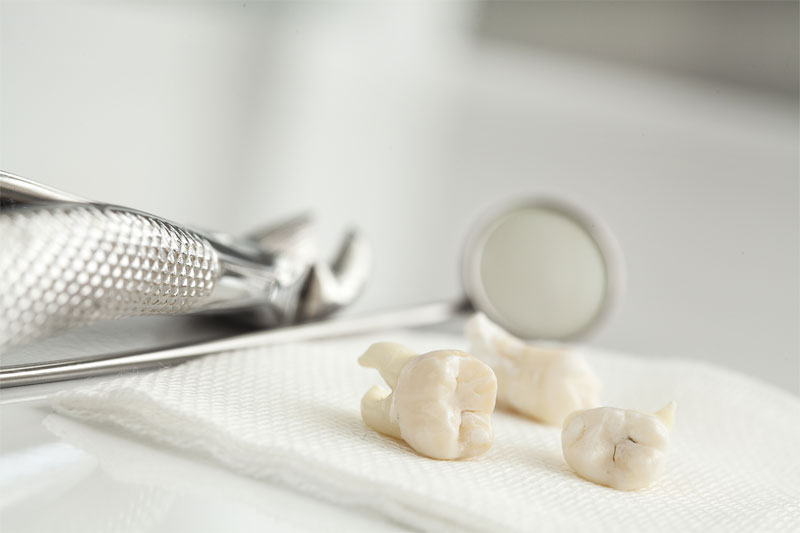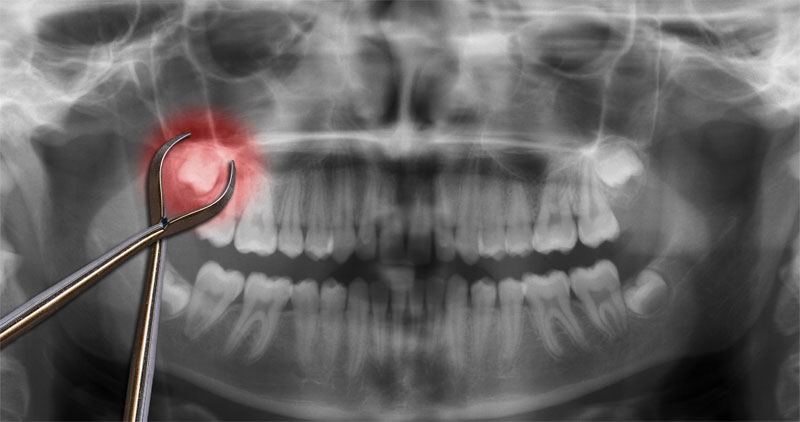Wisdom Teeth
People develop three sets of molars throughout their formative years. The first come in around age six, the second at around twelve, and the third molars (wisdom teeth) typically develop and begin to erupt in a person’s late teens or early twenties. Most people, however, only have enough room in their mouths for 28 teeth to fit comfortably. The wisdom teeth (if you’ve developed all four) make 32.


Why Have the Wisdom Teeth Removed?
If there’s not enough space for wisdom teeth to erupt without incident they become impacted, which means they might erupt fully, partially, or remain below the gums, while they press against neighboring teeth. When left intact, impacted wisdom teeth cause problems, such as:
- Tooth Decay and Infection
- Development of Benign Tumors and Cysts
- Alignment and Crowding Problems
- Damage to Nearby Teeth
Due to the likelihood that health problems will develop as a result of the third molars, we often recommend extraction.
Does Everyone Need to Have Their Wisdom Teeth Removed?
Although most people do end up needing to have their wisdom teeth removed, the third molars will occasionally erupt without incident. These patients do not necessarily need to have their third molars removed, but these teeth can be difficult to maintain and are often prone to decay and disease. As a result, wisdom teeth must be closely monitored. To avoid potential health problems, some patients whose wisdom teeth erupt normally still choose to have them extracted.
When Should a Person Have Their Wisdom Teeth Extracted?
Wisdom teeth have developed in individuals in their late teens or early twenties. We typically recommend extraction, if necessary, as early as possible. The more time wisdom teeth remain in the mouth, the more difficult they are to extract, as the jawbone will harden around the molars’ roots.


What to Expect During a Wisdom Teeth Extraction
Wisdom teeth extractions vary, depending on whether or not teeth have erupted. A simple extraction can usually be performed with local anesthesia during a quick appointment. Fully impacted teeth or teeth that have not erupted might require a more invasive procedure which would be performed with the patient under general anesthesia.
At Kenmore Smiles Family Dentistry, we take every precaution possible and work with each patient to ensure their comfort and safety during every procedure we perform. Our dentist will ensure you know what to expect during your appointment and will provide you with instructions for post-procedural care.
Have Your Wisdom Teeth Evaluated by Dr. Mott
Once a person’s third molars have developed, they’ll appear on dental x-rays. With these early x-rays, even before wisdom teeth begin to come in, our dentist, Dr. Bradley Mott can determine whether there’s enough room in the patient’s mouth for teeth to erupt normally or if teeth are positioned at a troublesome angle. Dr. Mott will work with each patient to determine the best course of treatment, regarding wisdom teeth. For more information, we welcome you to schedule an appointment at Kenmore Smiles Family Dentistry today.










